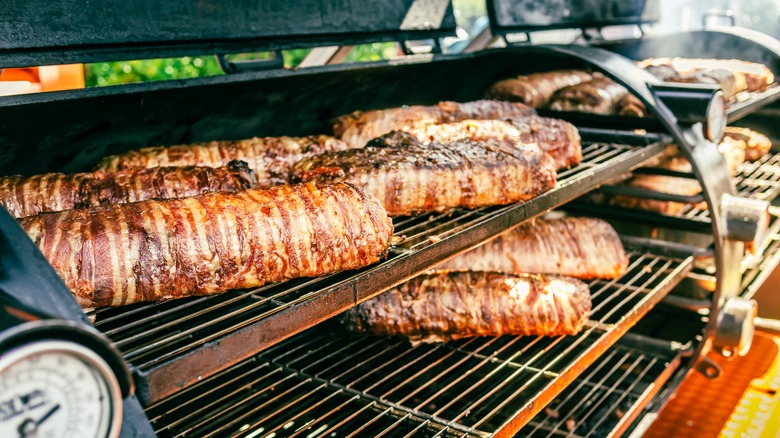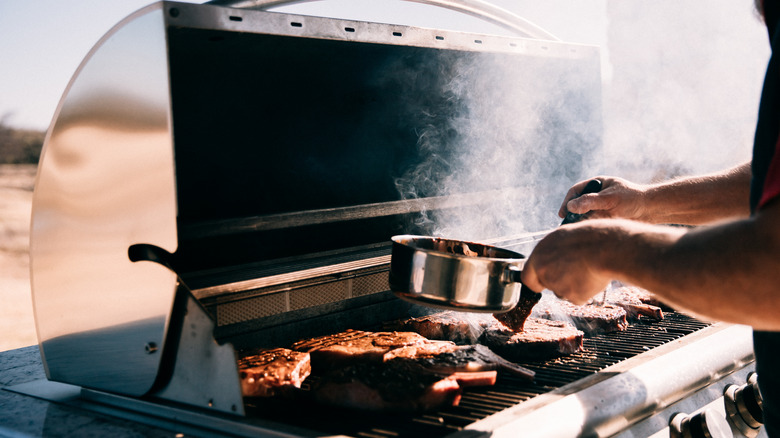What Happens When You Over-Smoke Meat And How To Avoid It
Smoking meats at home can be an intricate process for beginners, from picking the type of wood chips to cooking the meats like smoked brisket for the exact right amount of time. And even when you get all of those factors spot on, accidentally over-smoking the meat will put all of that effort to waste and ruin the meal. To prevent over-smoked meats at your next cookout, there are a few factors you should look for before the meat even hits the grate.
"You're looking for hot, clear blue smoke circulating well through the smoker when smoking meat," says Robbie Shoults, a celebrity chef, third-generation owner of Bear Creek Smokehouse, and owner of Marshall Mercantile and High Horse 1898. "Puffy white smoke that emerges when you light new wood chunks carries a lot of creosote and bitterness, which will affect the taste of your meat. Let this burn off first before adding your meat to the smoker," Shoults explains.
If you don't look out for the right type of smoke or let it cook for too long, there's a price to pay. "If you over-smoke your meat, it can have a strong unpleasant smoke flavor and can even taste bitter," he says. Two more ways to prevent over-smoked meats are to use the right type of wood chips to match your meat and to wrap the meat in aluminum foil or butcher paper to limit how much smoke reaches the meat while it's on the grates.
More tips to smoke meats properly
If your meat still turns out over-smoked, not all hope is completely lost. Try to remedy the issue and add a flavorful barbecue sauce or fat, like butter, to temper the smokiness of the meat. And if a sauce doesn't do the trick, use the meat in another way to combat the flavor. Shred the meat and use it in a dish with additional ingredients, like brisket tacos, or turn it into a stir fry with vegetables that can soak up some of the smokiness.
And while the smoke factor is an essential component to smoke meats the right way, it's not the only factor that can ruin your burgers or ribs. There's also a temperature mistake you must avoid with your smoker with any type of meat. Smoking meats requires a slow cooking process at a low temperature as opposed to grilling — so don't overheat your smoker. If you do, the meat might not be tender and it won't take on that smoky flavor, two of the benefits of cooking with a smoker. As a final word of advice, follow these essential tips when cooking with a smoker, including how to control the heat in order to avoid over-smoked meats.

